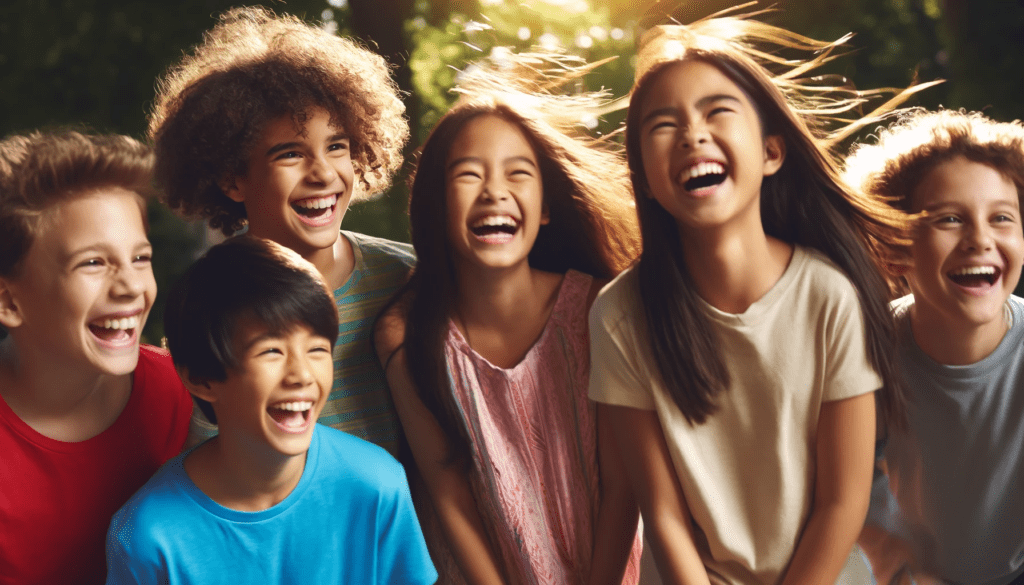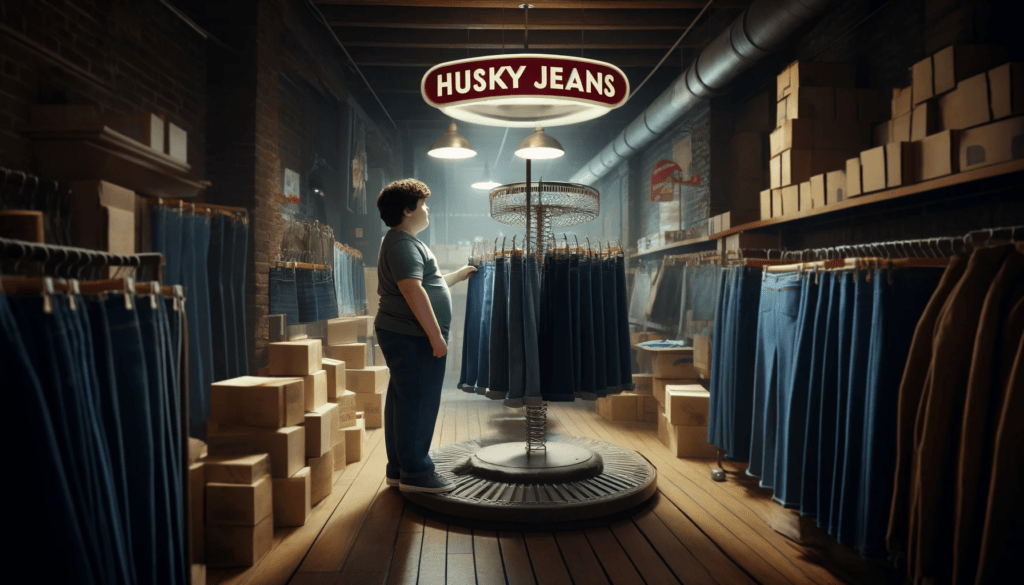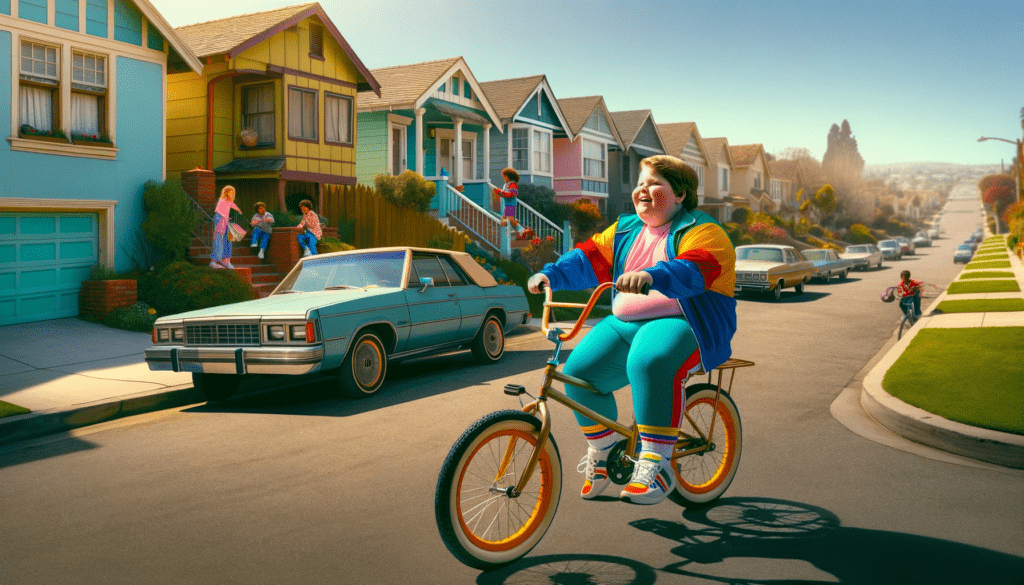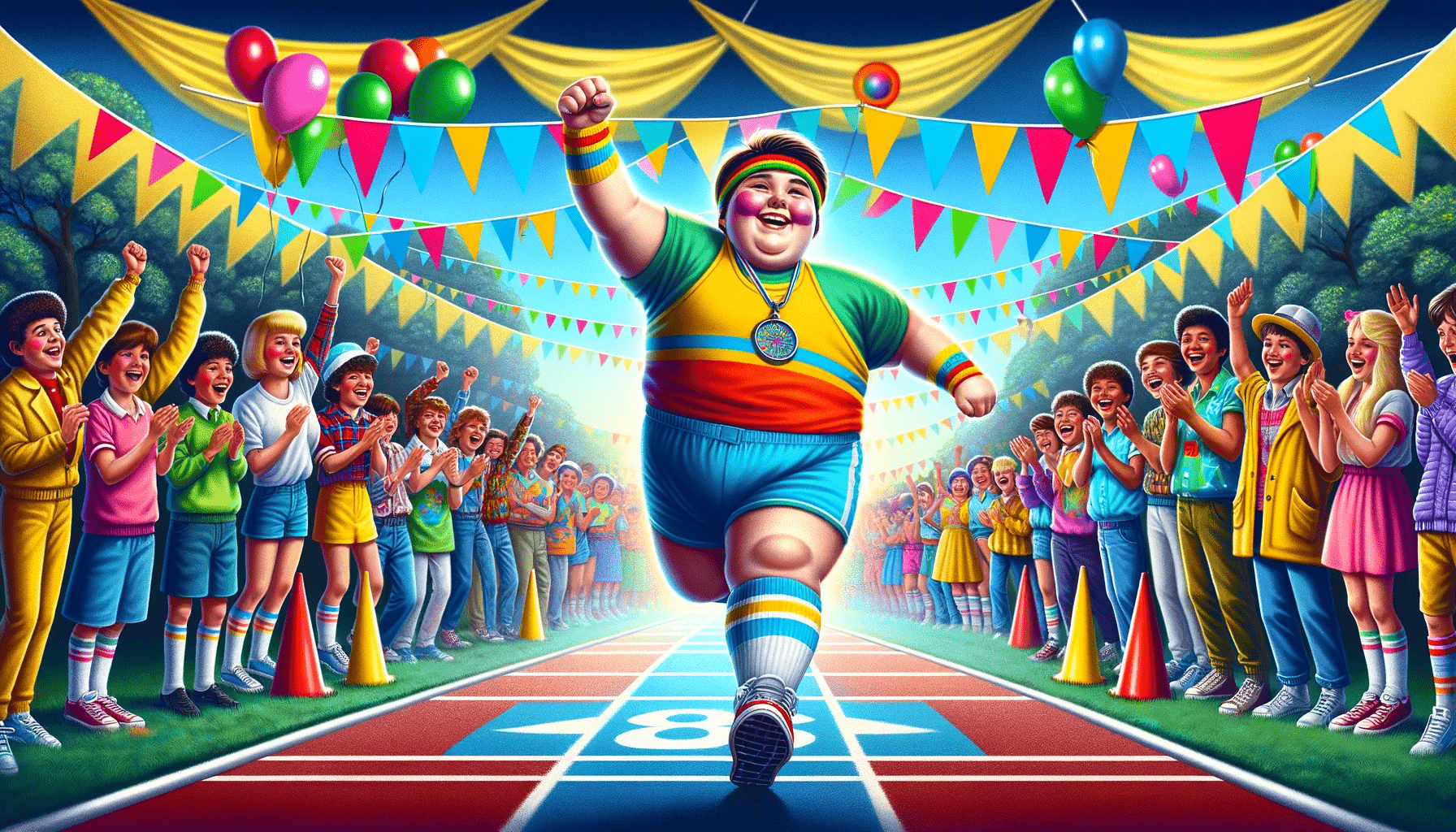What I Learned from Being a Fat Kid in the 80s and 90s
Introduction: Reflecting on My Childhood Obesity in the 80s and 90s
Being a fat kid in the 80s and 90s was a bit of a disaster for those of us who found ourselves in that predicament.
I know the term “fat kid” is offensive. I’m not using the term to be hurtful.
In the 80s, if you were overweight or obese, it was called being fat. There was no mixing of words on the playground or on TV or in movies.
I think that it is therefore important to use the term “fat kid,” to be clear about what I’m talking about. To clarify, I will never call anyone else fat. Just myself.
My experiences are unique. I do not profess to understand how being an overweight kid during those decades affected other people.
I can share with you my experience growing up with this label though.
I’ve come to find out many years later, that although I tried to ignore the name calling and body shaming, and not let it define me, that it actually played a big part in forming my identity.
More compassionate people like my parents would label my being overweight as being “big-boned,” but that wasn’t fooling anyone.
I always knew that I was a fat kid, no matter how many times people tried to soften their words.
Self-Deprecation: A Strategy for Navigating Social Waters
One thing that I learned early on as a fat kid, is that if I made fun of myself first, before people could start poking at my blubber, I could usually make it through social interactions fairly smoothly.
Being “funny” was a better “f” word that was used to describe me back then. Much better than the fat word.
I remember hearing recently that famous comedian John Candy had much the same experience. He originally wanted to be a football player but lacked athleticism.
Instead, he found his way into comedy by leveraging the survival skill he learned as a an overweight youth. The self-deprecating humour he used to become a “funny man” was born out of using humour to gain acceptance and overcome bullying.

The Dual Edges of Humour and Acceptance
Being a funny fat kid had its benefits. But its effectiveness in compensating for my flab only worked when I was amongst friends and acquaintances who knew me. And only when those people weren’t weren’t mad at me, or trying to escape ridicule themselves.
I was an easy target to shift the focus to, if someone needed respite from whatever names and insults were being hurled at them.
For the most part, I didn’t really get mad or hold a grudge against people who threw me under the bus when trying to escape being hurt themselves.
I understood what it felt like to be the focus of ridicule, and the desperation of trying to escape from it.
Beyond the Laughter: The Lasting Impact of Childhood Teasing
I don’t want to give the wrong impression here. This is not an article complaining about how crappy people were to me in the past.
I had lots of friends, played sports, went to birthday parties, and generally had a pretty easy childhood.
The days of my youth were filled with many fond memories, and opportunities afforded to me as a white middle-class kid living in a small rural Canadian town North of Toronto.
I merely want to share some insights into how years of focusing on one’s own body image in a negative way, might affect their development and self-esteem as an adult.
Recently, I had a little bout of the depression.
At 43, I found myself lost and wanting to hide away from the world for what seemed like no good reason.
I have always been an anxious person (undiagnosed until Aug 2023), but having a clinical diagnosis of depression was something new to me.
Through my recovery, talk therapy has helped me realize that the little kid inside me (in my case the little fat kid), is still feeling ashamed and sad about struggling with my weight.
I’m slowly learning to be kinder to that little fat kid. For a long time, I hated and resented that kid.
My resentment of him is shameful. If that was any other kid, I would’ve gone out of my way to be kind, be empathetic and supportive.
It turns out that we can be way crueler to ourselves than to others.
The Unrealistic Body Standards of Pop Culture
If you grew up in the 80s and 90s, you may remember that a lot of us spent a considerable amount of time in front of the TV.
On TV, the image of the ideal, popular, successful, strong, and talented individual rarely, if ever, depicted someone who was also overweight.
If someone with my physique made it on screen, or into print for that matter, it was more often than not because they were the comic relief or the evil villain.
In the late 80s I was big into watching WWF wrestling, reading Marvel comics, and just coming off of an obsession with all things He-Man.
The heavier wrestlers were typically the bad guys, or heels.
In comics, the heavier-set characters were usually villains and depicted as morbid and disgusting.
I don’t remember anyone having an ounce of fat on them in He-Man. Everyone in that universe seemed to be pretty shredded.
When contrasted with real-life pop culture icons, it was obvious that I looked different from them too.
As hilarious as Weird Al is, his song “I’m Fat,” was a no-go for me. I can remember many a school day spent sitting in class, trying to suck in my gut to minimize my profile while that song was stuck in my head.
Bathing Suits and Swimming with a Shirt On – Good Times
I used to get headaches a lot. I think some were caused from not breathing properly and holding my breath while trying to suck in my tummy.
Spending hours sucking in my gut in public settings daily did come in handy when I had friends over for a swim in our pool. I could usually hold my breath longer than most during holding your breath under water competitions.
But having to wear a bathing suit in front of people was… devastating. I was the kid at the beach that often swam wearing a t-shirt as well as a bathing suit. Just so I didn’t have to expose my muffin tops or my spare tire.
Not all media was bad though. There is a heartwarming little film from 1995 named “Angus” that I really identified with.
I saw myself in Angus. The movie inspired hope as Angus overcomes bullying and learns self-acceptance while struggling with his weight issues.
I saw this movie when I was 16, and in some ways, I think I needed it. It let me know that others understood what it was like to be an overweight teen. Which was important because I certainly didn’t talk to anyone about how I felt being a fat kid.
The Struggle with Self-Image and Dieting Attempts
At this point, I’m sure that at least one person is thinking, “hey, if your weight was such a bother to you, why didn’t you do something about it?”
I haven’t quite dug deep enough in my therapy sessions to ferret out the answers to that question yet.
However, I can tell you that I tried dieting for the first time at the age of 12.
I can also tell you that the more focus that was put on my weight and trying to lose weight, the worse I felt both mentally and physically.
I knew back then that the desire for immediate gratification, and not thinking long-term, was doing more harm than good. But I guess I wasn’t strong enough to resist the compulsion to stuff food in my face.
It’s weird to me to think that there are people who can walk by a cupboard full of food, or a stocked refrigerator, and not be compelled to open the door and cram something in their mouth.
I now know that a lot of the time I ate because it felt good in the moments when I felt bad.
A Vicious Cycle
I wanted to be like the heroes on the screens. Those brawny, fit, handsome fellas that saved the day because of their sheer awesomeness.
Those guys looked great, while this fat kid did not.
And my coping strategies consisted of binge eating rather than exercising or working out. I was already sweaty enough without exerting myself and sweating was gross. It also made my acne worse, which was the last thing I needed.
There was also the fear of being ridiculed for being slow, flabby, weak, and out of shape.
That fear perpetuated the cycle of being ashamed of being fat; avoiding putting myself in vulnerable situations; eating to trigger dopamine releases of immediate gratification.
And then immediately regretting eating and hating myself for not just being a fat kid, but for being stupid and making it worse.
The Role of Media and Advertising in Shaping Body Image
There seemed to be reminders about my weight struggles everywhere I looked as the 90s progresses.
As I was becoming more and more self-aware, self-conscious and self loathing, the screens that I gawked at not only showed the hero physiques that I wished I had, but now every time there was a break in the action, there were ads for things like Weight Watchers, Jenny Craig, Slim-Fast, and Nutrisystem.
Although not directly targeted at kids, they were certainly impactful at shaping my perception of what society valued.
At 12, and into my early teens, I consumed ads for weight loss systems as it seemed to become trendy to be trying to lose weight.
The marketing of these companies was super-effective. At that time there didn’t seem to be any concern with discussing dieting in front of kids.
I don’t know if you remember the dieting craze of the 80s and 90s but I do. I remember family gatherings when adults would talk about being on Weight Watchers. They’d discuss how much they had lost or planned to lose, and compared recipes and calorie counts.
Around age 14 I remember wanting to try Weight Watchers and begging my mom to sign me up.
However, I was too young. But I did find some of the program’s literature and tried to participate from the sidelines.
Name Calling Persists as People Try to Be Funny
During some of my repeated teen dieting attempts, I remember getting more compliments from people if I had lost a few pounds, than I normally received from them in previous interactions.
It didn’t take long for me to become conditioned to only expect compliments about how I looked if I was losing weight.
Otherwise, I was the funny kid, or the smart kid, or the so big for my age kid. Never the handsome kid. I know that I’m lucky to be called nice things like funny or smart. It’s just that it was a little saddening to either be funny, smart or fat. If no one laughed at my jokes, or if I fell behind in class, I was just a fat kid again.
Credit to the name callers, they always tried to keep it real, and fresh insults were both creative and cutting.
In the 80s between 5 and 10 years old, I can remember being called “Fat Albert.” After age 10 into the nineties, it was “hey Yokozuna,” or “here comes the Blob” (an X-men villain).
I was referred to as a few different types of animals too; most of them rhymed with cow.
Sticks and Stones and Screens
This is where some people might think, well kids don’t know any better, or kids will be kids. I was often reminded that “sticks and stones will break my bones but…” you know the rest.
That didn’t help.
Am I guilt free? Did I engage in name-calling at other people’s expense? Yep, I did.
Do I regret it? 100%.
Knowing what I know now about how words can do as much damage as sticks and stones, I try to do better.
I think as a society we can do better too. We’ve made some progress since the 80s and 90s.
People on screens can use their influence to role-model not making jokes about people’s body image. And we can all do better in our day-to-day interactions.
Because when kids know better, they’ll do better too.
The Modern Digital Arena: A Potential Ally for Body Positivity
I mentioned earlier that I felt bombarded by images of what a body should and shouldn’t look like in the 80s and 90s.
At least back then, I didn’t walk around with a TV or PC in my pocket though.
The era of constant connectivity that we now live in, means that messages about body image are always just a finger swipe away.
I imagine it must be even harder for young people today that struggle with their weight.
However, social media and screen time, often vilified for their role in exacerbating issues of self-image and bullying, hold untapped potential for becoming powerful allies in reshaping the narrative around body image and self-acceptance.
Imagine a world where our feeds are filled not with unattainable ideals, but with stories of real people. Stories that embrace people’s journeys, their struggles, and their victories.
Social media platforms can serve as stages for sharing diverse body stories. Promoting a genuine appreciation for the multitude of ways to exist and be healthy.
Hashtags and campaigns that celebrate all body types can become the norm. Offering support and visibility to those who once felt isolated.
We’ve seen this starting to happen with campaigns like Dove’s Campaign for Real Beauty. Now we just need more of it.
A Call for Greater Awareness and Kindness in Body Image Conversations
I challenge you to become more aware of how pervasive the conversation is about body image.
It isn’t always overt, or in your face; it can be subtle, and concealed in what isn’t said.
Be aware of well-intentioned efforts that do more harm than good. Like one of my defining experiences I’d like to share that occurred when I was 12 or 13.
I had long since grown out of kid-sized clothing and my parents knew that I was self-conscious about my weight.
I dreaded shopping. The cool clothes never fit. And trying on clothes when you hate the way that you look is frustrating, sad, and embarrassing.
Having struggled for a couple of years to find clothes that fit on the bargain racks in our local Wolco, Biway, or Zellers, I was taken on a special shopping trip to a men’s clothing store downtown.
When I arrived at this store, I was greeted by a well-dressed man, maybe in his 50s. He was definitely a heavy smoker based on his raspy voice, and grey complexion, but his clothes looked great. He was skinny, and he smelled of manly aftershave, kinda like my Dad’s Old Spice smell but stronger.
My mom announced that we were there to find me a pair of jeans. The man took a look at me before telling us to follow him.
We walked part way through the shop and then crossed behind the cash register to a stairway to the basement.
The Unique Experience of Shopping in the “Husky” Section
In the basement amongst boxes of shoes and other things tucked away in storage, there was one circular clothes rack full of an assortment of different slacks.
As we descended into the dark basement, the man excitedly told us that this was where they kept their “husky section” of clothing.
I’m sure my face must’ve turned the colour of red Kool-Aid as I felt a knot form in my stomach.
I held back the tears as my mom and the man pulled a few pairs of jeans off the rack and held them up to me.
I will forever remember going to buy my first pair of “husky jeans.” WTF was everyone thinking?
Was it nice that the store had something that fit me? Yes.
Was it devaluing that these items were kept in a dark basement away from the rest of the store and the rest of the other shoppers? Yes.
For an already self-conscious and embarrassed teenager, it felt that the store wanted to keep me from scaring away the normal looking people who fit into the normal sized clothes.
I never went back.

I still hate shopping for clothes. But when I do drag my butt to the store, I always prefer to go somewhere that has my size mixed in with other sizes and not in its own separate section.
I’d rather dig to the bottom of the pile or check behind regular sizes to look for something that might fit, then have to go to a special section that reinforces my bigness and my being different from the norm.
Ordering online has helped. I have a better chance of finding my size, and most places let you return stuff that doesn’t fit.
Struggling With Weight Issues In Sports
I am truly grateful for all of the opportunities that I had to participate in sports while growing up. I know that I am lucky and privileged.
Most of my memories of playing team sports are very positive. And some of my best buds were met while playing sports.
But I also have some memories from sports that have scarred me and I’d like to share one with you.
While playing lacrosse one year, as we waited for the ice to be taken out of our local arena, we started “conditioning practices” indoors.
One day at the end of practice, we were going to play a bit of a game of indoor soccer.
We didn’t have any pinnies, so our coach informed us that we were going to play “shirts against skins.”
I instantly felt the knot grow in my stomach. Please be on shirts, please be in shirts, please be on… great, I’m on skins.
I sucked in my stomach the best I could and peeled off my shirt.
Then the comments came and a few laughs. No one seemed to intentionally try to hurt my feelings or make me feel bad. It was just something that you did back then. You made fun of people who were different.
I expected the other kids would poke fun at me because I was a fat kid. I was prepared to take try and take it in stride.
Kids Can Be Mean, But Adults Should Know Better
But the thing that caused the real hurt was that my coach made a comment about my physique that solicited a laugh from my teammates, and from the other adult coaches.
I was mortified that the coach was grossed out by me. I. was trying desperately to earn a starting goalie position and I thought this would negatively impact my chances.
Not to mention the position of power and influence that he had over is kids. If he thought it was ok to make fun of my appearance, the floodgates might open.
Did he ever say or do anything else to make me feel that bad about myself? No. Did he realize what he said was devastating? I don’t know.
Some of us humans are wired in ways that make us remember the bad stuff more than the good. It’s probably due to evolution and needing to survive and learning to avoid threats and all.
I share this story and my other experiences to provide real life examples of things that may seem harmless, or even well-intentioned, that can actually be very demeaning, and cause wounds that last for decades.
Because when we know better, we’ll do better.
Empowering Change Through Digital Narratives and Real Stories
I wasn’t brave enough to tell people how I really felt back in the 80s and 90s.
Now that I’ve been able to share my experiences, my simple ask is for us all to consider being a bit more mindful of how we talk about, display, and rolemodel things related to body image and weight loss.
Be aware, know better, and do better, so that we can all inspire the next generation to do the same.
As we forge ahead, let’s challenge ourselves and each other to harness the power of our screens for good.
Let’s curate our digital spaces to reflect the diversity and beauty of the real world, encouraging conversations that build up rather than tear down.
By doing so, we not only offer a lifeline to those struggling with weight and self-esteem issues but also contribute to a cultural shift that values health and happiness over mere appearances.
Conclusion: A Collective Effort Towards a More Inclusive Society
In the end, the story of this fat kid from the 80s and 90s could be a call to action for all of us.
A reminder that through empathy, education, and the strategic use of digital tools, we can create a world where every person feels that they are valued, and that they are much more than just a number on a scale.
Thanks for taking the time to listen to my deeply personal story.
I’d love to continue the conversation with anyone who feels comfortable leaving a comment below. Let’s chat.
Thanks for stopping by.
Have a rad rest of your day!

Craig is a partner, and proud father of a teenage daughter, and two dogs. He's an avid blogger who loves researching and discussing 80s and 90s nostalgia. When not working on his website or hanging with his fam, Craig enjoys playing guitar, watching lacrosse, and being near water.

